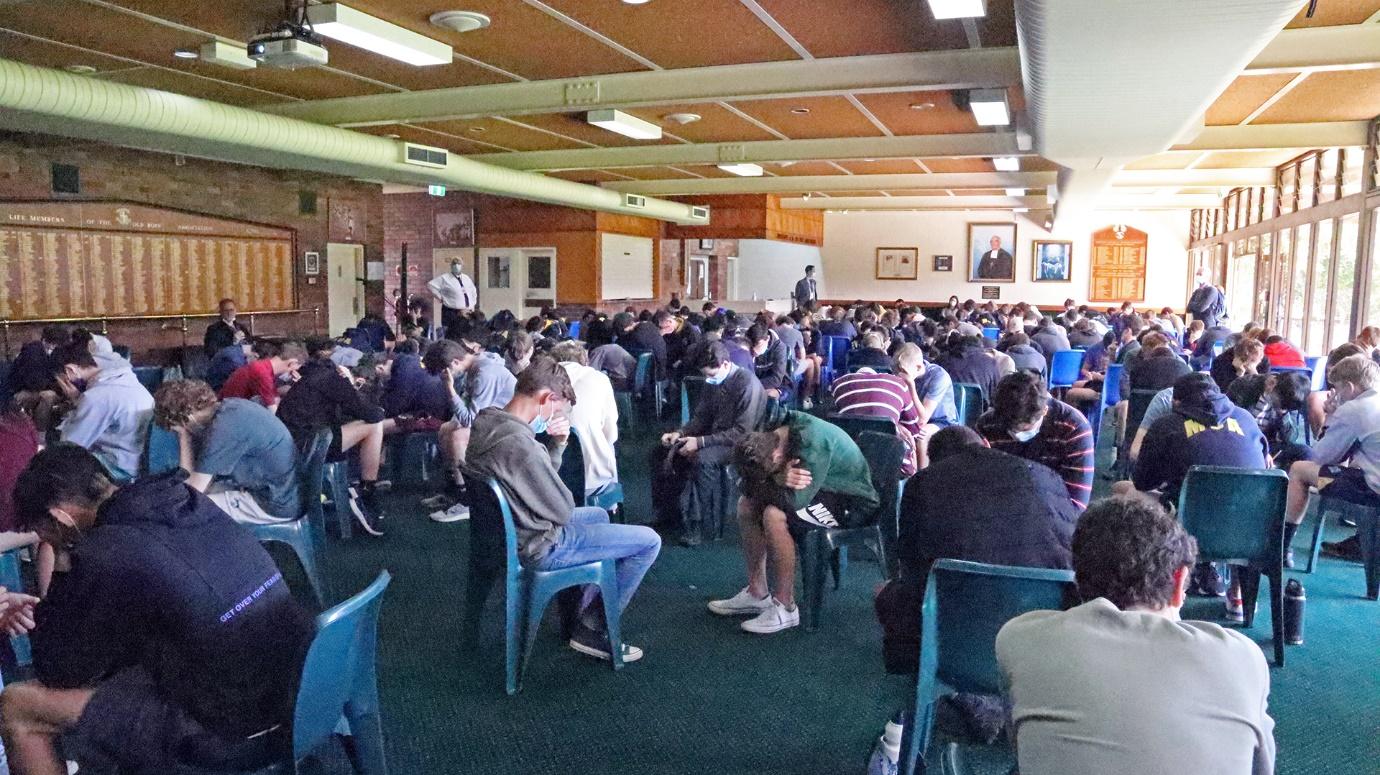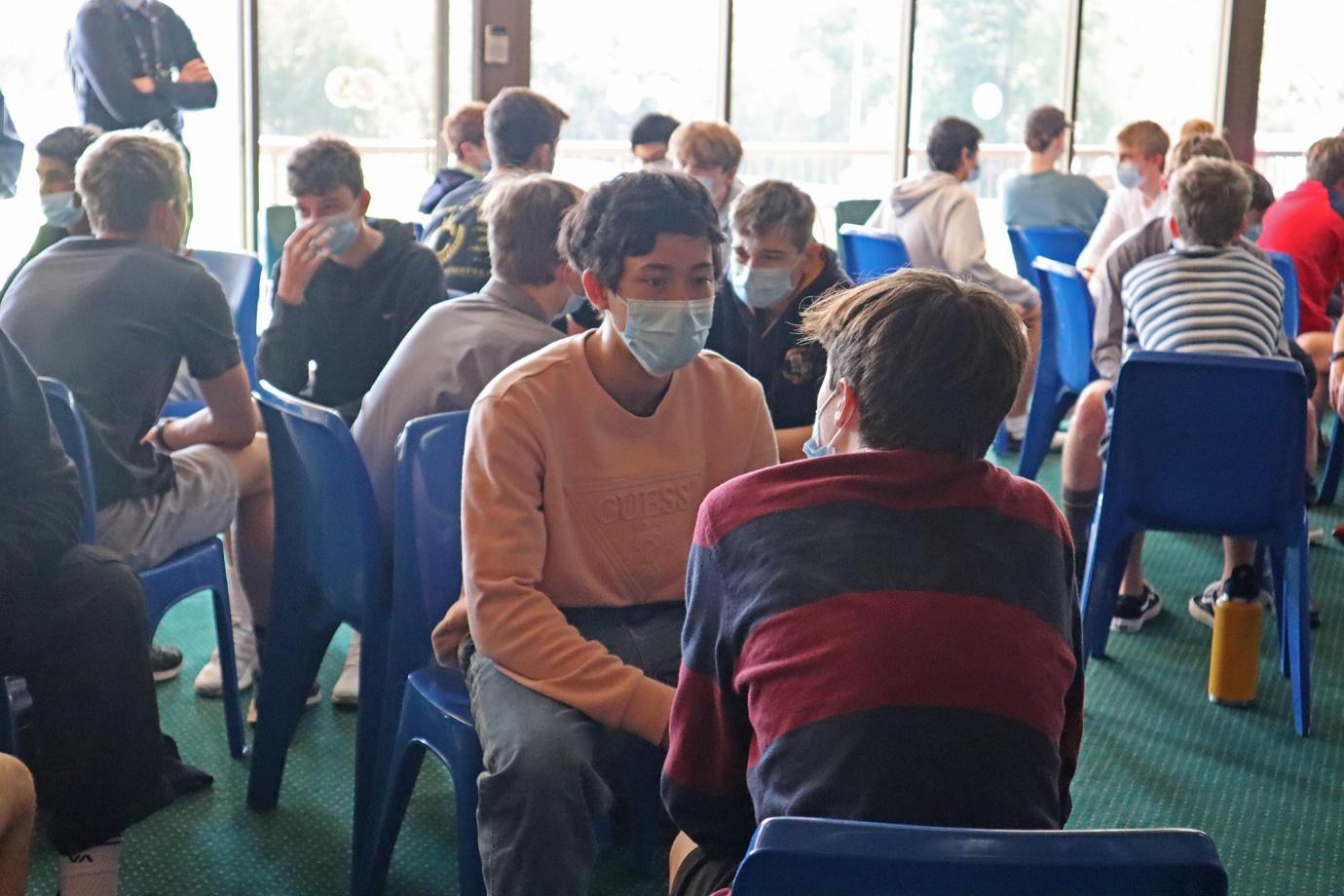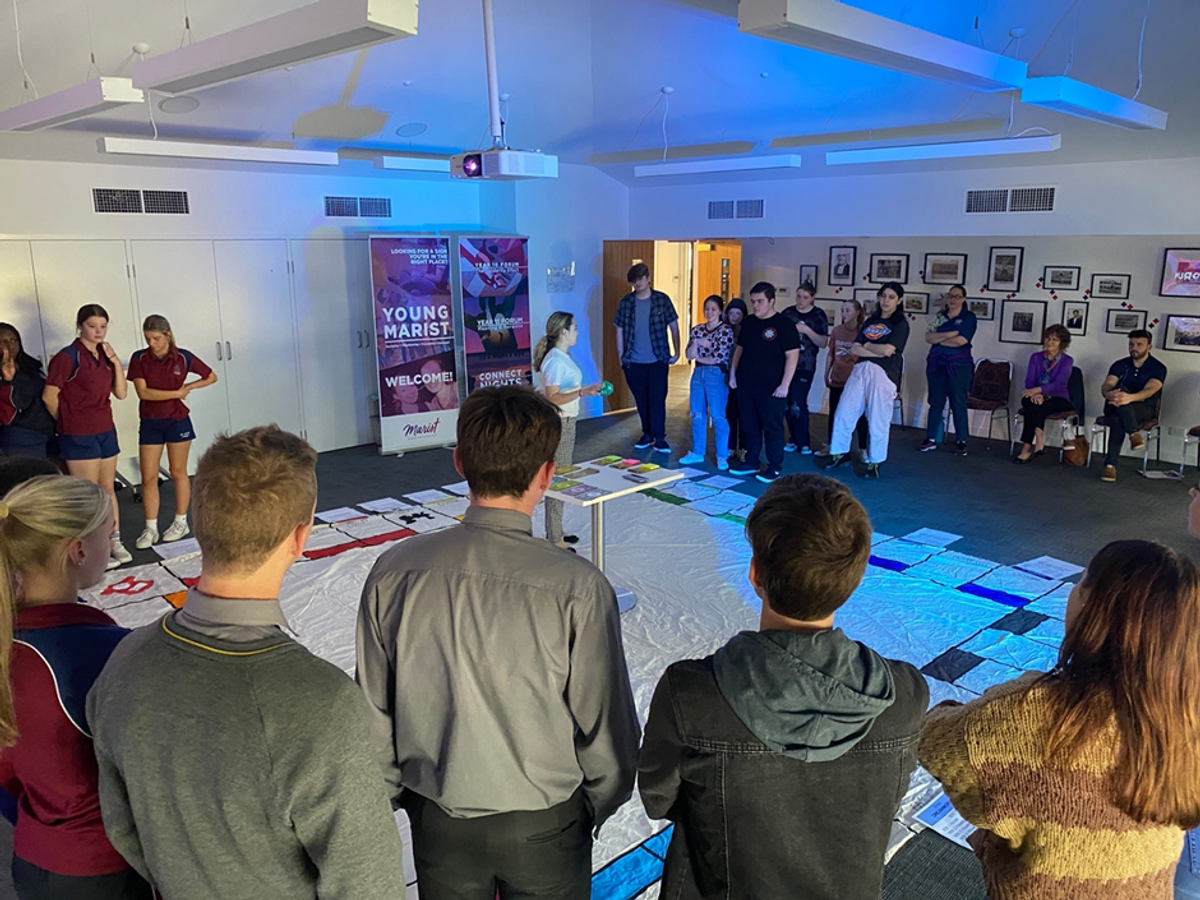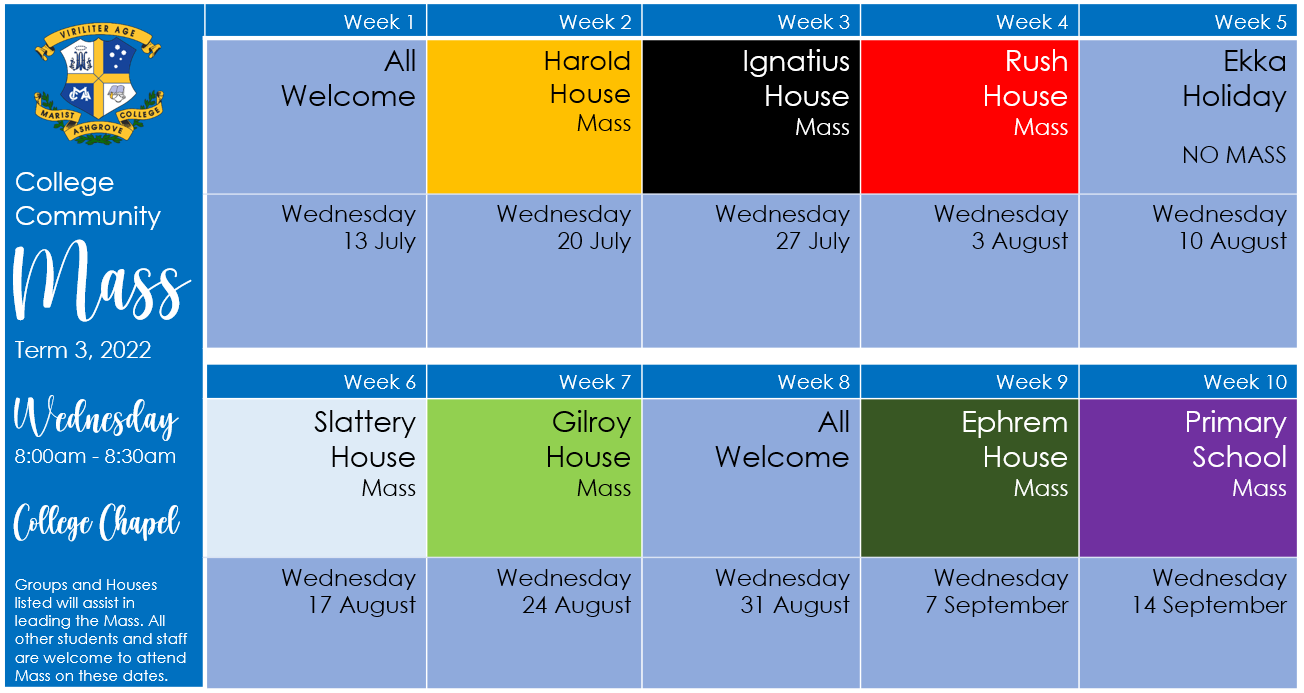Mission News
Mr Luke McMahon

Mission News
Mr Luke McMahon
We pray for all those in our community who are unwell or suffering at this time.
May our loving God, with Mary and Champagnat, walk with all members of the Marist family. Amen
The Theology of Presence
To be present to people.... to our world…. to ourselves
To look at people with the eyes of compassion and acceptance and dignity
To listen to people — not just to their words but to their whole self and what they are saying and to what they are not saying — and to their story
To speak words that affirm and heal and challenge
To touch in a way that respects and heals and affirms
To do all of this from a heart that is constantly becoming more Christ-like.
To do all of this in a way that says: You, as am I, are a child of God.
The Sony Camp scheduled for the September school holidays has been cancelled due to the particular nature of the Sony Camp and in the health interests and well-being of the children with disabilities who attend the camp as well as those Year 11 students chosen to work closely with the children on the camp.
Staff Professional Development Breakfast
A Catholic Perspective on Relationships and Sexuality
Colleen Robertson and Doug Perrers
Friday 19th August saw the latest in the Religious Education professional development breakfasts. These occasions, enhanced by a wonderful breakfast prepared by the Year 10 hospitality students, offer an opportunity for teachers to get together and explore important aspects of delivering the RE curriculum. On this occasion, we were privileged to hear Dr David Kirchhoffer, Director of the Brisbane Bioethics Centre, deliver a presentation on a Catholic perspective on relationships and sexuality. This timely and important session was of course valuable for teachers of HPE as well as RE, and its subject matter also infuses other curriculum areas.
David opened by presenting a framework for being a Catholic teacher in this space. He won over his audience by admitting that the Catholic Church has developed something of an image problem over recent years. This has created a sense of a prohibitive institution, obsessed with a ‘thou shalt not’ mentality. The poor image has been compounded by questions over what a celibate priesthood would know about these areas of life anyway and the impression that the Church is outmoded, or even hypocritical. This means that Catholic teachers can be faced with resistance from young people and others when it comes to opening up discussion about sex and relationships.
Catholic teachers, David advised, are also placed in the position where we ought to point out what the Church’s perspective on sex and relationships is not. We were reminded about what a Catholic perspective is not. It is not “what the pope says;” the pope shapes thinking, but his off-the-cuff remarks do not change teaching. Neither is a Catholic perspective of what the Bible literally says. Biblical interpretation is too complex to offer this kind of simplified precept. Nor is a Catholic perspective an arbitrary set of laws and rules.
This moved the discussion neatly on to asking; what then is a Catholic perspective on relationships and sexuality? There followed a highly constructive and reassuring assessment of this very question. Attendees were reminded that the Catholic Church draws on over 2000 years of reflection and experience on these important aspects of human life: tradition dictates that there is value in what has gone before. Perspectives are also built on faith and reason.
David incorporated the concept of flourishing to expand these ideas. The good news is that God wants the best for us as human beings. Since human beings are made in the image of God, we are good, and since sex is part of the human condition, it is per se good. David was clear on the distinction between what is inherently good and what is morally good. People are good because we have dignity, are rational and free and because we are capable of love. Sex, too, has value in and of itself. We were reminded that sex affords pleasure, love and procreation and these are innately good things. Moral good can be sought through adopting the virtues (courage, temperance, justice and prudence and the spiritual virtues of faith, hope and charity) and doing the morally right thing. For all of us, seeking to be morally good is a work in progress; but the audience was reassured to know that we can enjoy what is good because God wants us to flourish; and even if others may seek to take the Church’s teachings out of the equation, Catholic teachers can still stress that wanting the best for each other is a noble goal for all people.
This was an informative and thought-provoking session, and I am sure we are not alone in hoping that Dr David Kirchhoffer will return to Marist to continue the discussion and allow us to think more deeply about teaching concerning relationships within a Catholic context.
While there was some illness that accounted for absences from Year 10 retreat held last week, it was disappointing to see a number of students absent from the day for no good reason. Overall the retreat was a worthwhile experience and a rare chance for the students themselves as well as the staff to observe the cohort journey through the retreat experience. Touched on were some important qualities of the year 10s including behaviours and attitudes which do not always allow students to thrive and flourish. There was some time spent reflecting on the “culture” of the group, those who hold “power” within the group and how this power is demonstrated. A number of student volunteers spoke articulately and at times passionately about what they observed about the group. There was a particularly poignant reflection by some students on the degree of misogyny and homophobia which is sometimes expressed within the group.
Retreat presenter, Michael Fitzpatrick asked students to reflect upon and note their greatest “fears” at this stage of life and then fed back some of these to the group. There was enormous consistency in the experience of the Year 10 students. The retreat ended with a liturgy that focussed on the ways we tend to “bind” each other and ourselves through negative feelings, attitudes and values and with that established, the tremendous capacity we each have to be able to liberate others and ourselves through thoughtful, generous, compassionate and loving attitudes and actions. We are motivated to this way through the example of Jesus Christ, the source of our being.






Several Marist boys attended the recent Marist Youth Forum. Entitled the Solidarity Effect, this day provided a platform for our students to engage and interact with other Marist students from across Brisbane. The program invited students to explore the meaning of “solidarity”, a strong value within our Marist charism. A large-scale game of Monopoly provided insight into how inequalities occur in society, and how to approach others with empathy rather than judgement. A reflection on the work of Marist projects throughout the Asia-Pacific region led students into a space of prayer, seeing our world as Christ sees it.



